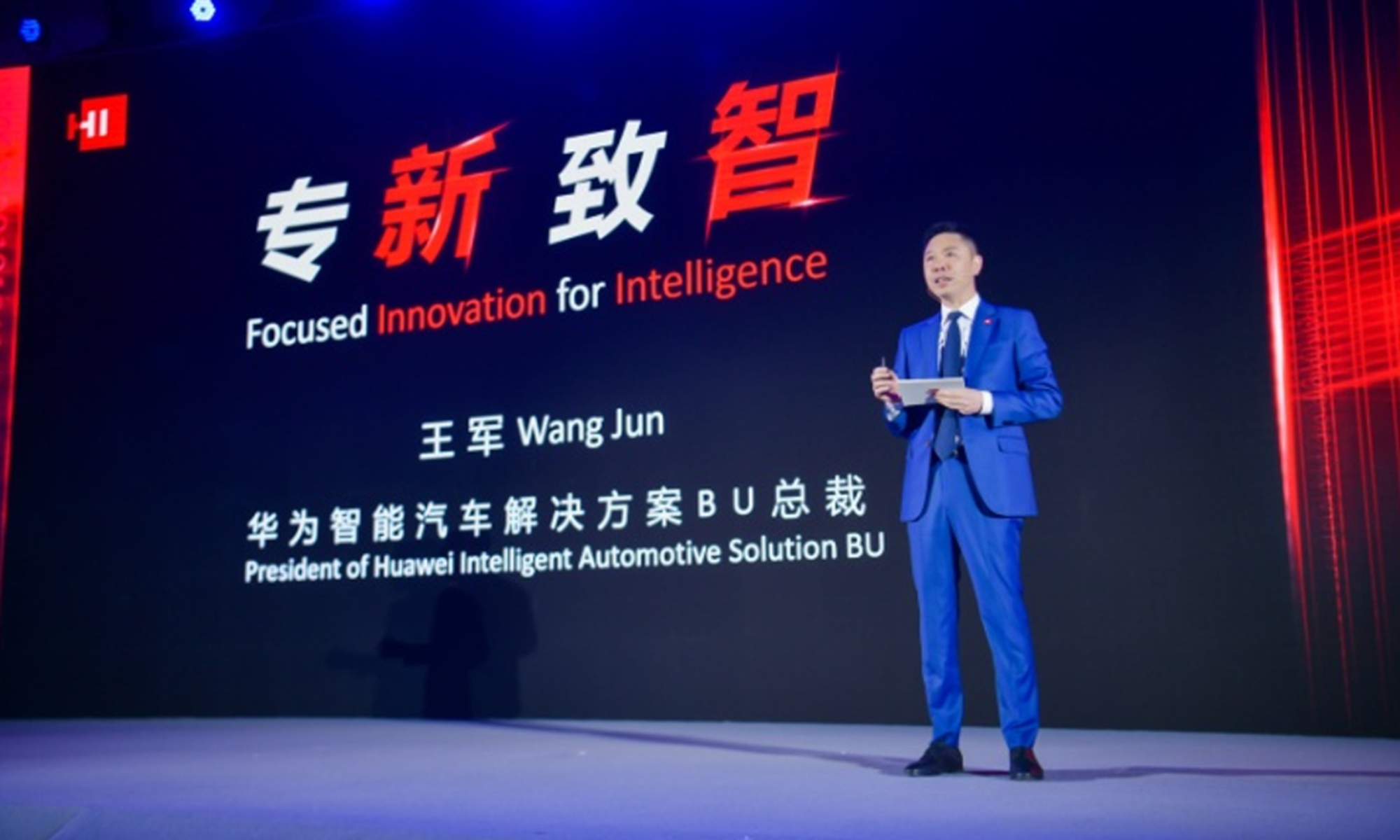
Wang Jun, president of Huawei's IAS Business Unit, speaks at the new product launch in Shanghai on Sunday. Photo: Courtesy of Huawei
Chinese tech giant Huawei Technologies Co launched a series of intelligent car components and solutions including 4D imaging radar on Sunday, another foray into the vehicle sector that analysts said could help it offset the impact of the US' suppression of its mobile business - and perhaps also enable the company to rival industry giants like Tesla.
Wang Jun, president of Huawei's Intelligent Automotive Solution (IAS) Business Unit (BU) said at the launch event that Huawei will invest $1 billion in developing intelligent vehicle solutions this year, with a global research team exceeding 5,000 technicians and engineers.
Autonomous driving research is the key to IAS, and it will be allocated 2,000 researchers, Wang said, adding that Huawei has more than 200 cooperative partners in the intelligent automotive industry.
The release came one day after Huawei and BAIC Motor Corp jointly launched ARCFOX Alpha S on Saturday, a new generation of smart luxury pure electric cars, which the company said will be the world's only urban commuter autopilot mass-produced cars.
According to Huawei, ARCFOX Alpha S offers "incredible" autonomous driving capabilities, even in complex traffic scenarios that mix automobiles and non-motor vehicles. A trial driving video showed that the Alpha S avoided an electric bicycle cutting in from a neighboring lane and passed the road section smoothly without obstructing other vehicles.
Huawei rotating chairman Xu Zhijun said last week that Huawei IAS could achieve fully autonomous driving in urban areas for trips of 1,000 kilometers. "That's much better than Tesla," Xu added.
Industry analysts said for now, Huawei and Tesla each have their own strengths, although Huawei has the potential to come from behind.
Huawei has advantages in the intelligent networking of self-driving vehicles, while Tesla has comprehensive advantages in the autonomous driving technologies that function well in most cases, Cui Dongshu, secretary-general of the China Passenger Car Association, told the Global Times on Sunday.
Compared with domestic internet giants like Baidu or Xiaomi, which have announced plans to build intelligent electric vehicles, Huawei's strengths are its in-vehicle control systems, powerful sensor mechanisms and the interplay among different parts, Cui noted.
Huawei has also reiterated that it will not manufacture cars itself, but will only help car producers make better vehicles.
However, Cui pointed out that the rise of IAS can hardly reverse the downtrend in Huawei's net profits and revenue that has been caused by the waning of smartphone production and sales, as both the profit margin and market size of vehicles is smaller than that of mobile phones.
The Chinese tech giant's ambitious foray into the new sector comes as Huawei's smartphone business faces further decline under the US' chip ban. Huawei has been also looking at other sources of revenue such as artificial intelligence (AI) technology that would be leased to pig farmers. Huawei is also working with domestic coal miners.




